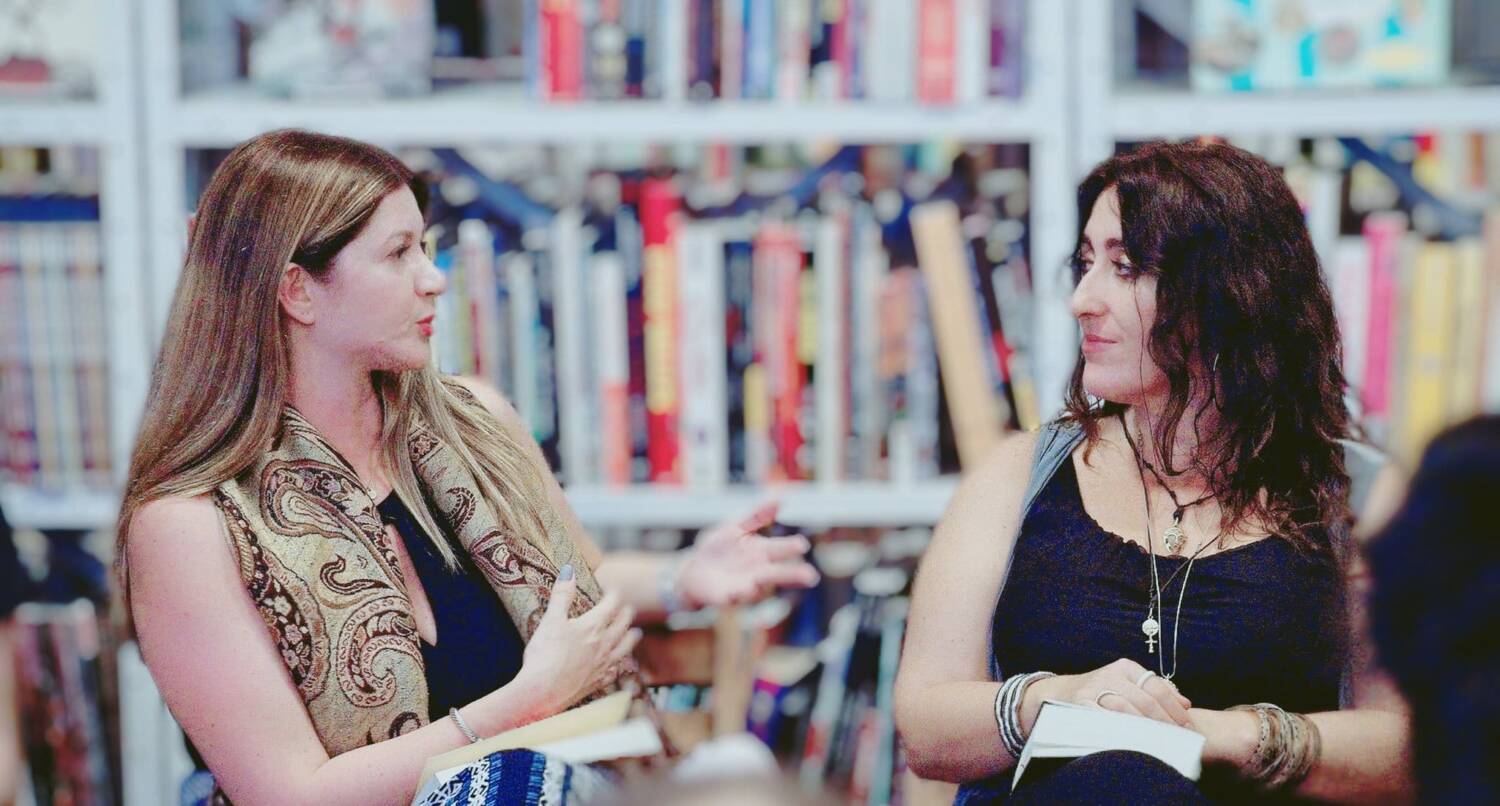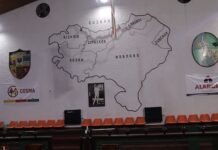This article was translated by John R. Bopp
Amaia Gabantxo is from Bermeo (like our Basque language editor, Leire Madariaga), and really, we shouldn’t have to say anything else. But it’s a good thing to highlight that in addition to being the English-Basque translator (in both directions), a teacher in the US, flamenco singer, and artist, she is so much more. We’ve spoken about her on numerous occasions and that’s because we’ve held back, as we could easily have spoken about her work and her diffusion of Basque culture around the world on so many more.
One of those occasions when we “held back” was in the summer of 2019, when Amaia collaborated with artist Jenny Holzer on a retrospective of the career of the latter that was held at the Guggenheim Bilbao. Holzer later said that this idea had been incubating in her mind for over twenty years: projecting Basque poetry in Basque and English on the façade of the Bilbao Guggenheim Museum.
Now, we can make up for not blogging about that thanks to this extraordinary article published by Izidora Angel on the website Proyecto Plume, which offers us a profile of Amaia Gabantxo that’s full of human details and reflections on her work and the concepts that guide it.
It’s quite hard to understand and explain how much it means to Basques that their language still occupies a place in the world. And this place is ever more settled in, reaching landmarks that the pessimists of the 19th century, with their made-up minds, could never have imagined.
It’s quite hard to explain, but it’s also quite easy, if you speak from experience and from the heart, as Amaia’s mother did on the day she saw Holzer’s piece: “You can’t even begin to imagine what this means for my generation, to see Basque projected, after everything we went through in the dictatorship, when it was prohibited to use it, speak it, write it”.
Amaia is one of those many key pieces in the clockwork that is keeping our language moving forward. She does it from a perspective of universality, respect, knowledge, intelligence, and determination that there is no language in the world that is more important that Basque, nor is there any language in the world that is less important.
That means that all those who decided Basque was destined to disappear because it wasn’t useful, dignified, or able to be a “modern” language were wrong. Thanks to the many “Gabantxos” out there, we know that this is false.
Eskerrik asko.
Proyecto Plume – 12/9/2019 – USA
Amaia Gabantxo: Word Warrior
With over two dozen literary translations in print, Amaia Gabantxo is the first and most prolific translator of Basque literature into English. Her immense literary contributions have been awarded with multiple accolades including the Etxepare-Laboral Kutxa Prize for Basque literature. In English, her book-length translations include Twist by Harkaitz Cano (Archipelago, 2018), A Glass Eye by Miren Agur Meabe (Parthian, 2019) and Unai Elorriaga‘s new novel, Last Year’s Bones (Archipelago, 2020). In this intimate profile by fellow translator Izidora Angel for Project Plume, Gabantxo discusses her artistic journey towards re-empowering the ancient, mysterious and still-vulnerable Basque tongue, and her mission to translate more Basque women writers.
(Sigue) (Traducción automática)
Last Updated on Dec 20, 2020 by About Basque Country





